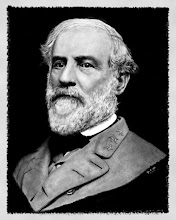Before I begin a more in-depth look at the five points, I wanted to hit on a particular claim which I have heard and seen on several occasions:
5PC is the gospel, anything else is a false gospel. "Charles Spurgeon rightly stated that 'Calvinism is nothing more than a nickname for Biblical Christianity.'" - Dr. C. Matthew McMahon. Monergism Books has the following on their website: "Come learn what the great Baptist preacher C.H. Spurgeon meant when he said, '…to deny Calvinism is to deny the gospel of Jesus Christ.'" See further http://www.calvinismisthegospel.com/. I must make it clear that this series of posts is not attacking the gospel of Christ as defined by the Apostle Paul: "Moreover, brethren, I declare unto you the gospel which I preached unto you, which also ye have received, and wherein ye stand; By which also ye are saved...For I delivered unto you first of all that which I also received, how that Christ died for our sins according to the scriptures; And that he was buried, and that he rose again the third day according to the scriptures." Paul says that the gospel of Jesus Christ which saved sinners is the good news about the death, burial, and resurrection of Jesus Christ, not TULIP. TULIP is not the gospel, but rather a system of theology providing a model of how God saves people. Not one of the five points is included in the gospel message, i.e., we are not saved by believing in the doctrine of depravity, though one must believe he is a condemned sinner who can do nothing to save himself in order to come to Christ; we are not saved by believing in election, though election determined the people of God; we are not saved by believing in limited atonement, this is not even true; we are not saved by believing in irresistible grace, though it is that grace which works mightily unto repentance and saving faith; and we are not saved by believing in the perseverance of the saints, though true saints will persevere unto the end. While some aspects are biblical doctrine then, they are biblical doctrine, not the gospel of Jesus Christ. One does not have to be a 5PC to believe the good news of salvation by grace alone, through faith alone, in Christ alone.
In actuality, 5PC requires, if one is consistent with it, that we not preach the gospel of Jesus Christ that Paul taught. It actually turns salvation by faith completely on its head, renders faith unnecessary for salvation, and makes it impossible to preach the gospel. I will deal with those issues as we go on, but it must be clear that TULIP and the gospel two different things and a rejection of the first is not an inherent rejection of the other.
So on to the five points:
Total Depravity
Defined: "When we speak of man's depravity we mean man's natural condition apart from any grace exerted by God to restrain or transform man....In summary, total depravity means that our rebellion against God is total, everything we do in this rebellion is sin, our inability to submit to God or reform ourselves is total, and we are therefore totally deserving of eternal punishment." - John Piper "Man, by his fall into a state of sin, hath wholly lost all ability of will to any spiritual good accompanying salvation; so as a natural man being altogether averse from that good, and dead in sin, is not able, by his own strength, to convert himself, or to prepare himself thereunto." - Westminster Confession
On the surface, I agree with this point. Man is totally, or radically, depraved, in and of himself. He is the arch enemy of God by birth, and nothing in man will ever change that. But that surface definition is not all that this point is actually said to teach. The doctrine is expanded in its application and implication to the point that the gospel is turned upside down.
The doctrine of calvinistic Total Depravity (TD) teaches that man is dead in his sins and that being so dead, cannot have faith in Christ till he be made alive. (In this, the doctrine of irresistible grace and total depravity come together in the Calvinist scheme, but that is for a later post.) In other words, the idea of death in TD is the same as physical death, just in the spiritual realm. A spiritually dead man is a spiritual corpse, and as a corpse can do nothing till it be raised to life, so a spiritually dead man can do nothing till he be raised to life. "The
doctrines of total depravity and spiritual inability are foundational to one’s
understanding of the nature of Christ’s redemptive work. If men are dead in
sin, helpless, spiritually blind and cannot believe in Christ; then the
salvation of sinners of necessity involves much more than Christ dying for all
men and then waiting passively to see who will accept His gift. If unsaved men
are unable to choose or to will any spiritual good, then apart from a spiritual
rebirth, no man would choose Christ...But, we ask, can the Arminian
position be true biblically or even logically if men are spiritually dead and
don’t simply need a gentle push or a little medicine? What if men need a
spiritual heart transplant, a spiritual resurrection, a quickening? The
diagnosis determines the nature of the remedy. A
biblical understanding of man’s state after the fall ought to cure us of the
sinful and somewhat blasphemous notion that a thrice holy God has associated
Himself with sinful depraved man as only
a minor partial cause of a sinner’s salvation. The fact that the natural
man is a spiritual corpse without any ability to seek God or take even one step
toward Jesus means: that regeneration must precede and not follow saving faith...The apostle also teaches that spiritual death is the universal state of
all men apart from Christ. According to God’s infallible Word the state of spiritual
death can only be remedied by a direct
act of God upon the human heart, a spiritual quickening. This fact is
totally at odds with the common modern evangelical notion that unregenerate man
has the ability to choose Christ. According to Paul regeneration must precede saving faith. Paul,
under divine inspiration, used the word “dead” for a reason. There is no middle
ground between being alive and being dead. Unregenerate men are not just sick,
handicapped or impaired but dead....Obviously,
a man who is spiritually dead can no more see spiritual truth or choose Christ
than a rotting corpse can play tennis or debate philosophy." - Man’s Need of Salvation: Total Depravity and Man’s Inability, Brian Schwertley
The error here is subtle: man left to himself is just as this describes, but the application is wrong because death is improperly defined. When a man dies physically, his spirit is separated from his body (Ecc. 12:7). His body is inert, incapable of anything at all, good or bad, and becomes dust. Spiritual death is not so, but similar. Christ alone is life (John 11:25, 14:6), and apart from him, you cannot have life. Therefore, when man has sin on his account and he is separated from God (Is. 59:2), he is separated from life and is therefore dead. The spiritually dead man who dies is eternally separated from life at the judgment and thus dies the second death. What is not the same with physical death, however, is that the spirit of man is not a corpse, but rather an eternal living entity. Death is merely the separation from God, not inertness. The spirit in hell is as much alive as the spirit in heaven, but it is spiritually dead. The spiritually dead spirit may commit much evil, unlike the physical corpse, may worship demons and Satan, etc. By being separated from God however, it was made by sin the enemy of God, and only by God intervening can the spirit respond and understand the things of God (they are spiritually discerned). Hang with me now. What this means is that the spirit apart from God's involvement is wholly set against God and cannot see or hear the things of God. Christ said, "He that is of God heareth God's words: ye therefore hear them not, because ye are not of God." John 8:47. But since the spirit is not a corpse, does the claim that the only way for a man to see and hear the gospel is for him to be regenerated? (The Lord Jesus Christ taught that the human nature is so thoroughly ruined and corrupted by the fall that the Holy Spirit must first radically change it before a person can understand and embrace spiritual truths. - Brian Schwertley)
As we will see in part three, Christ taught that the Spirit of God can make the spiritually dead hear and see before they are regenerated and that this is fundamental to the gospel. Only hostility is an option if God is not involved, but God has the ability to open the unregenerate heart to see and hear that it might live again.
The error here is subtle: man left to himself is just as this describes, but the application is wrong because death is improperly defined. When a man dies physically, his spirit is separated from his body (Ecc. 12:7). His body is inert, incapable of anything at all, good or bad, and becomes dust. Spiritual death is not so, but similar. Christ alone is life (John 11:25, 14:6), and apart from him, you cannot have life. Therefore, when man has sin on his account and he is separated from God (Is. 59:2), he is separated from life and is therefore dead. The spiritually dead man who dies is eternally separated from life at the judgment and thus dies the second death. What is not the same with physical death, however, is that the spirit of man is not a corpse, but rather an eternal living entity. Death is merely the separation from God, not inertness. The spirit in hell is as much alive as the spirit in heaven, but it is spiritually dead. The spiritually dead spirit may commit much evil, unlike the physical corpse, may worship demons and Satan, etc. By being separated from God however, it was made by sin the enemy of God, and only by God intervening can the spirit respond and understand the things of God (they are spiritually discerned). Hang with me now. What this means is that the spirit apart from God's involvement is wholly set against God and cannot see or hear the things of God. Christ said, "He that is of God heareth God's words: ye therefore hear them not, because ye are not of God." John 8:47. But since the spirit is not a corpse, does the claim that the only way for a man to see and hear the gospel is for him to be regenerated? (The Lord Jesus Christ taught that the human nature is so thoroughly ruined and corrupted by the fall that the Holy Spirit must first radically change it before a person can understand and embrace spiritual truths. - Brian Schwertley)
As we will see in part three, Christ taught that the Spirit of God can make the spiritually dead hear and see before they are regenerated and that this is fundamental to the gospel. Only hostility is an option if God is not involved, but God has the ability to open the unregenerate heart to see and hear that it might live again.













+copy.jpg)




No comments:
Post a Comment